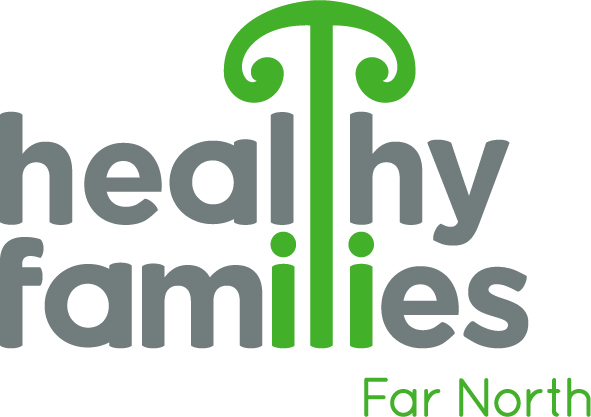She’s a te reo Māori teacher, self-taught builder, and qualified cyclist instructor – in fact, there isn’t much Elizabeth Motu can’t do.
The self-proclaimed “aunty from the movie Boy” has spent her life steeped in Mātauranga Māori, and now she’s returned home to work alongside whānau in the Far North.

Motu (centre), better known as Riri, has joined Heathy Families Far North as the Māori Systems Innovator, to create a better future with whānau through a Māori lens.
She says drawing on the knowledge of our tūpuna can contribute significantly to our knowledge in the future.
“Being Māori, we have this great sense of identity or wanting an understanding of where we come from, our whakapapa and our ancestral knowledge,” she says.
“Being able to be ourselves, to be Māori, that’s our mana, that’s where our strength lies and so what’s holding us back from being able to do things for our whānau that suits our way of thinking – for Māori, by Māori.”
Mātauranga is a system of knowledge and understanding about Māori beliefs related to the phases of creation and the relationship between atua (supernatural guardians), and tangata (mankind).
We have a strong oral tradition through whakapapa, waiata, haka, whakataukī, pūrākau, kōrero tukuiho, and whakairo.

Riri says Mātauranga Māori can be described as a train of knowledge, capable of evolving and responding to modern day situations.
“Whakaaro Māori is pinnacle to decision making for Māori because it works for Māori,” she says.
“We know what worked for our iwi and hapū hundreds of years ago, we know the stories, and we have the evidence of Taiao – the natural environment – to go off, and that can help guide our approach in the way we do things in the future.”
Riri brings her knowledge and experience from He Oranga Poutama ki Tāmaki Makaurau, where she was responsible for the development and implementation of Māori physical recreation and sport culturally appropriate to Māori.
Three weeks in the role and she’s already hit the ground running, working alongside renowned mātanga Rereata Makiha, to help build the Healthy Families Far North framework for the next four years that better reflects whakaaro Māori.

“I’m feeling very humbled to be back home to do the mahi that I’m passionate about,” she says.
“I’m excited to work with whānau, iwi and hapū, and I’m incredibly fortunate to be working alongside Papa Rereata, to better support him in his role, which is a critical component to the Healthy Families new way of thinking.”
It’s time for Māori to change the narrative, she added.
“We’re always talking about the barriers we face when it comes to doing this and that… especially living rurally, we know we’re left behind the ball sometimes… but I guess I just want us as a collective, to change the narrative.”
“We’re going into our third year of living with Covid-19 and so we’re at a point now where we’re trying to understand what it takes to create safe ways to gather in red light settings, especially for our whānau in rural communities.
“We all want to live our best lives and I can't wait to see what the next 10, 20 years looks like for us.”
